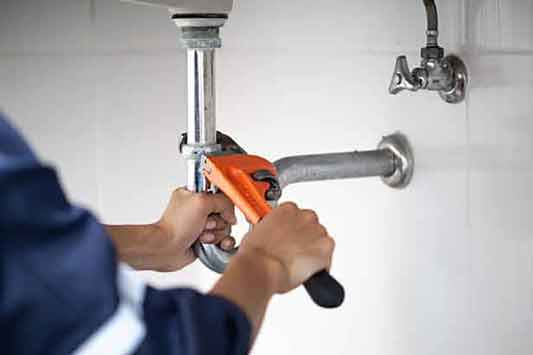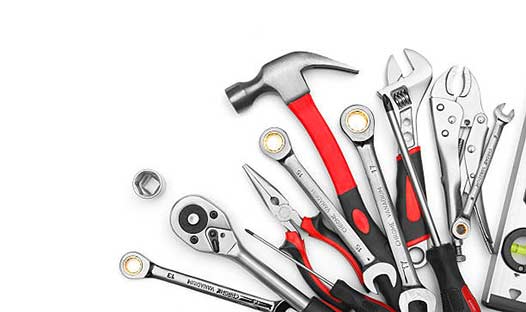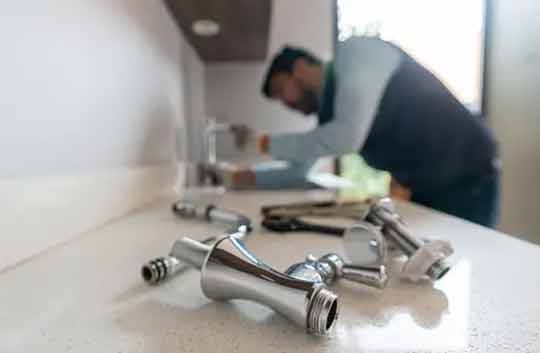
Dealing with broken drain pipes can be a major headache for homeowners. Not only can it lead to water damage and potential health hazards, but it can also be costly to fix if not addressed promptly. However, with the right knowledge and professional tips from Suburban Plumbing Experts, you can tackle this issue like a pro. In this article, we will provide you with invaluable advice on how to fix your broken drain pipes effectively, ensuring a seamless plumbing system in your home.
The Importance of Maintaining Your Drain Pipes
Before we delve into the professional tips, let’s first understand why it is crucial to maintain your drain pipes. Drain pipes are an integral part of your plumbing system and are responsible for carrying wastewater away from your home. When these pipes become damaged or broken, they can lead to a range of problems, such as:
- Water leakage
- Clogged drains
- Foul odors
- Mold and mildew growth
- Structural damage
- Health risks
By regularly maintaining your drain pipes, you can prevent these issues from occurring and ensure the smooth functioning of your plumbing system.
Identifying Signs of Broken Drain Pipes
Before attempting any repairs, it’s essential to identify whether your drain pipes are actually broken. Here are some common signs that indicate you may have a broken or damaged drain pipe:
- Water stains on walls or ceilings
- Slow drainage or recurring clogs
- Unpleasant smells coming from drains
- Backups or overflows when using plumbing fixtures
- Soggy or waterlogged areas in your yard
- Noises coming from your pipes
If you notice any of these signs, it’s crucial to take action promptly to prevent further damage.

Expert Tips for Fixing Broken Drain Pipes
Assess the Severity of the Damage
The first step in fixing broken drain pipes is to assess the severity of the damage. This will help determine whether you can handle the repairs yourself or if you need to call in a local plumber. In some cases, minor cracks or leaks can be fixed with DIY methods, while extensive damage may require the expertise of a plumber.
Gather the Right Tools and Materials
Once you have assessed the damage, gather the necessary tools and materials for the repair. This may include:
- Pipe cutters
- Pipe wrench
- PVC glue and primer
- Replacement pipes
- Plumbers tape
- Plumbers putty
Having these items on hand before you begin the repair process will ensure a smoother and more efficient fix.
Prepare the Work Area
Before you start repairing the broken drain pipe, it’s essential to prepare the work area properly. Clear any obstructions and create enough space to maneuver comfortably. Additionally, make sure to turn off the water supply to prevent any water leaks or additional damage during the repair process.
Cut Out the Damaged Section
Using a pipe cutter, carefully cut out the damaged section of the drain pipe. Make sure to measure accurately to ensure a proper fit when installing the replacement.
Install the Replacement Pipe
Apply PVC primer to both the existing pipe and the replacement pipe to ensure proper adhesion. Then, use PVC glue to connect the replacement pipe to the existing plumbing. Hold the pipes together firmly for a few seconds to allow the glue to set.
Secure the Joints
To prevent any leaks or water damage, it’s important to secure the joints properly. Use plumbers tape or plumbers putty to seal the connections between the pipes. This will provide an additional layer of protection against water leakage.
Test for Leaks
Once you have completed the repair, it’s crucial to test for leaks before finishing up. Turn the water supply back on and observe the repaired area carefully. If you notice any leaks or drips, make the necessary adjustments to ensure a watertight seal.

When to Call a Professional Plumber
While minor drain pipe repairs can be handled by homeowners, there are instances when it is best to call a professional plumber. Consider seeking professional help in the following situations:
- Extensive damage or multiple broken pipes
- Old or deteriorating plumbing system
- Limited plumbing knowledge or experience
- Complex repairs involving underground pipes
- Safety concerns
A professional plumber has the expertise and specialized equipment to tackle complex plumbing issues effectively, ensuring a long-lasting and durable repair.
Preventing Future Drain Pipe Damage
After fixing your burst drain pipes, it’s important to take preventive measures to avoid future damage. Here are some tips to help you maintain the integrity of your drain pipes:
- Avoid pouring grease or oil down the drain
- Use drain strainers to catch debris
- Regularly clean your drains
- Avoid flushing non-flushable items down the toilet
- Inspect your plumbing system annually
- Keep trees and shrubs away from underground pipes
By following these preventive measures, you can minimize the risk of future drain pipe damage and maintain the overall health of your plumbing system.
In Summary
Fixing broken drain pipes may seem like a daunting task, but with the right knowledge and expert tips, you can address this issue like a professional plumber. Remember to assess the severity of the damage, gather the necessary tools and materials, and prepare the work area properly. Cut out the damaged section, install a replacement pipe, and secure the joints to prevent leaks. Test for leaks before finishing up, and consider calling a plumber close to you for complex repairs. By taking preventive measures, you can avoid future drain pipe damage and ensure the smooth functioning of your plumbing system for years to come.

